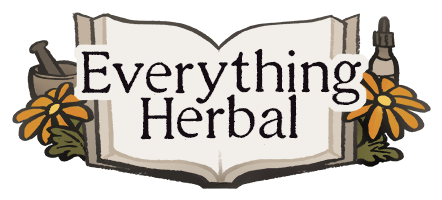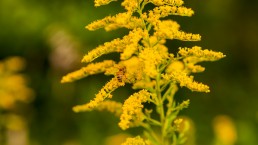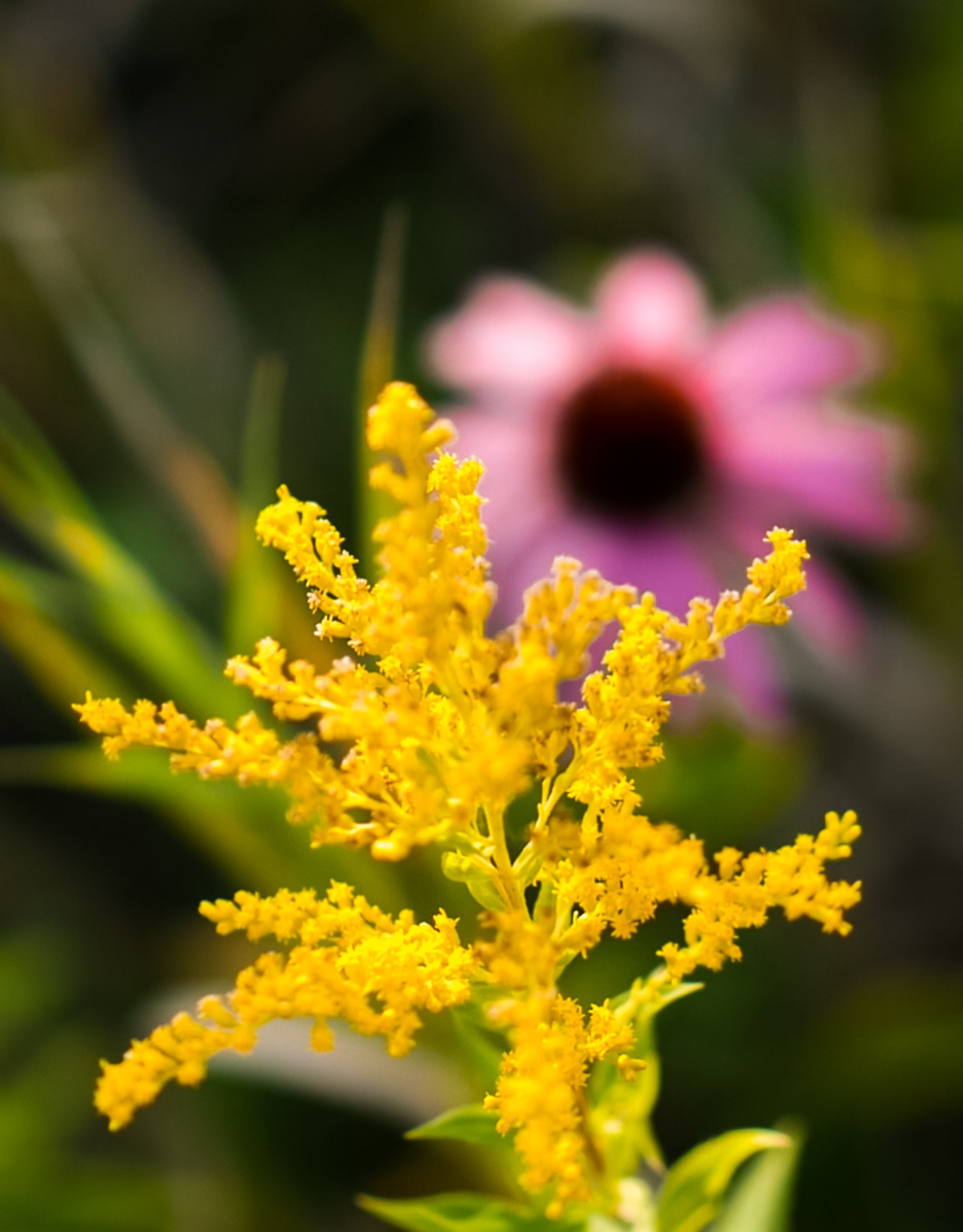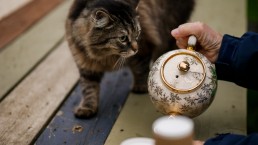Goldenrod
Goldenrod
AKA: Solidago
Uses
- Used for kidney stones, urinary tract infections, bladder inflammation, digestive problems, colds and flu, sore throat, congestion, laryngitis, fatigue and surprisingly hay fever and allergies.
- Indigenous peoples boiled leaves and used them topically as an antiseptic and astringent for wound healing and relief from eczema, arthritis and rheumatism
A Little About Goldenrod
- This beautiful herb grows in plant colonies, some are 100 years old! Older, central plants may eventually die back, creating a ring, but usually colonies are too dense for other plants to invade. Surprisingly, Goldenrod has no allergens. It is not goldenrod that brings on fits of sneezing in the fall, but the inconspicuous ragweed that grows in the same conditions, the same area, and at the same time. The heavy sticky pollen of goldenrod is not wind-borne, because many different insects take over the task of its pollination.
Historically
- After the Boston Tea Party, when American colonists had dumped all the tea into Boston Harbor, they discovered they had lost their favorite beverage. Not to be deterred for very long, they found that an excellent tea could be made from the leaves of the North American goldenrod, and they named it Liberty Tea.
- The stiff stem of the plant was historically used as a divining rod, but that was only successful if used by the right person.
- Another belief is whenever golden rod grows near a house, its occupants will have good fortune. Still another holds that wherever goldenrod grows, there can be found buried treasure.
- There is also a legend about two little girls that were very close friends; one was golden blonde and the other was dark haired with beautiful blue eyes. They were afraid that when they grew up they might be parted from each other so they didn’t want to grow up. To solve their problem, the two little girls set out one day to visit the good witch who lived across the field far away. They came to the good witch after a long day of travel and told her of their wish to always be together. The little girls were never seen again, but whenever you see the golden yellow bloom of the goldenrod you will be sure to find the sweet blue aster always beside her.
Tinctures
Adults
General adult tincture dosage: 15 – 30 drops / 3x daily
or
Dosage of a tincture for a chronic problem is ¼ teaspoon 3x daily.
Dosage for acute situations is ⅛ – ¼ teaspoon every half hour to an hour.
Children
Tinctures (vinegar base):
Young’s Rule = ¼ of adult dosage
Cowling’s Rule = ⅙ of adult dosage
Teas
General guideline:
If an adult dose is 1 cup of tea:
Children 1 year or less = 2 teaspoons
Children 2 – 4 years = 3 teaspoons
Children 4 – 7 years = 1 tablespoon
Children 7 – 11 years = 2 tablespoons
or
Tea is usually given in a dose of 1 – 2 eye droppers full to ¼ cup to children under one year, ¼ – 1 cup every few hours to toddlers and older children. For children over 1, teas can be sweetened with honey or maple syrup. Honey is excellent for treating coughs, too! (Do NOT give honey to babies under 2 years old – it can cause infant botulism).
February 14, 2021



